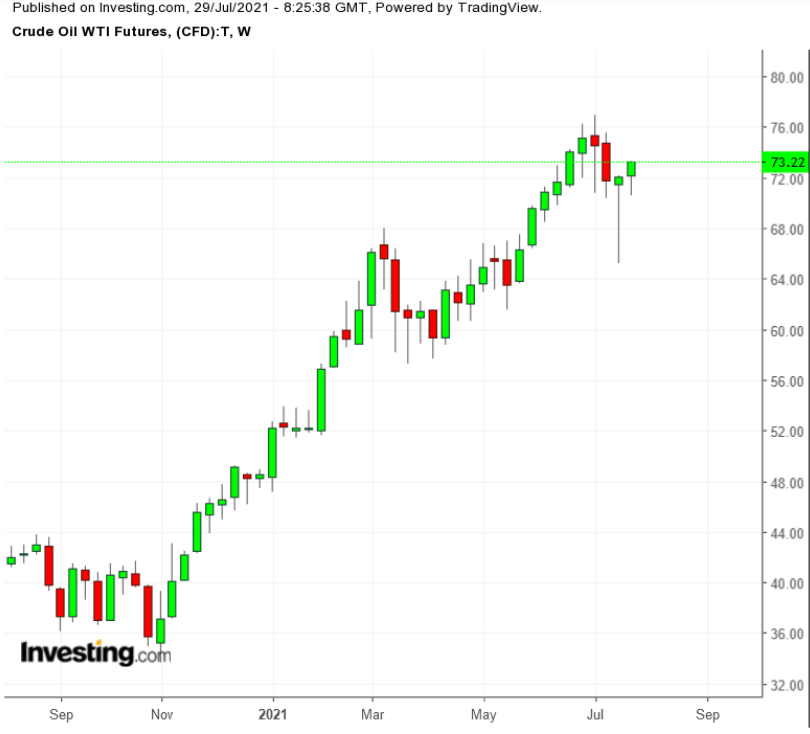As the U.S. economic recovery continues to ramp higher, travel and transportation are part of the acceleration. However, right now there's an imbalance between jet fuel demand and actual supply, especially in the western United States. But current conditions are not a sign of an overall scarcity of jet fuel.
Rather, the imbalance is the result of a dislocation of resources during the last 17 months.

It's important for oil traders to understand there's enough crude oil available and about to become available to accommodate traveler and transport demands. Ultimately, the problem will work itself out.
Here are the catalysts behind the current scenario:
The first reason that we're seeing jet fuel shortages in some spots is that, reportedly, 20% of jet fuel tanker drivers are off work. People were laid off as lockdowns took hold, and some have not yet returned to work or did not return to their original jobs. Some of these drivers may have taken jobs transporting other supplies, because drivers were in high demand for other industries over much of the last year.
The disruption in jet fuel is further exacerbated by pipeline issues. Many pipelines that once transported jet fuel across the United States switched away from that specific commodity during the period of extremely low travel numbers. Now that travel numbers have rebounded, the pipelines have not caught up with the changes. In general however, larger airports have direct jet fuel pipeline connections and sufficient jet fuel storage on sight.
But regional issues persist. The Reno-Tahoe International Airport saw jet fuel shortages last weekend, because some fuel tanker trucks were repurposed to bring fuel to firefighting planes in the West. The local Kinder Morgan (NYSE:KMI) pipeline cannot immediately be repurposed to carry more jet fuel, despite requests. The chairman of the Federal Energy Regulatory Commission claimed that jet fuel could be brought in from San Francisco where there is plenty available.
Furthermore, leisure travel is on the rise in the U.S., especially to relatively remote western locales. Perhaps this is because Americans want vacations away from crowds or masks, or perhaps it’s because travel abroad has become so difficult.
Whatever the reason, leisure preferences have changed, especially for Americans with disposable income. As a result, more flights are going to and from places like Montana, which has seen a 25% increase in flights since before the virus. On a recent Sunday, 18% of flights at Bozeman Yellowstone International Airport were delayed or canceled because of fuel delivery problems.
In short, we see jet fuel shortages in certain spots because of higher leisure air travel, especially at these western airports that are struggling with an interrupted supply chain. At the same time, higher ticket prices for air travel have convinced some that air travel is back to pre-virus levels.
This, however, is not the case. Ticket prices are higher, in part, because airlines have not yet brought all of their planes back into use. Airlines aren’t operating at full capacity, and they won’t commit to using all of their planes until they believe that total air travel demand requires it.
What does this all mean for the crude oil market? Traders should not be fooled by spot jet fuel shortages. The news of such shortages may grab the attention of the market briefly, but such news does not indicate a larger supply issue at this time.
Jet fuel supply is just a casualty of the changes in the economy due to the virus recovery, and it will balance itself out. This balance should not precipitate more crude oil production at this time.
